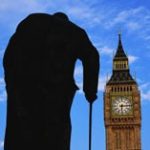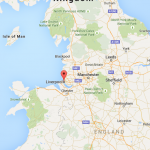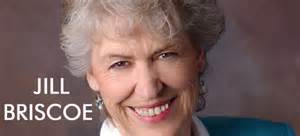The beginning of World War II saw England on the edge of disaster. Europe was being devoured, with Hitler’s long arm reaching all the way to North Africa. How long before the island itself would be invaded?
Hitler, however, failed to factor in Britain’s secret weapon—a man called Winston Churchill, recently elected Prime Minister. Churchill’s two most powerful speeches galvanized the United Kingdom.
May 13, 1940 after the incredible Dunkirk evacuation:
We are in the preliminary stage of one of the greatest battles in history….
I would say to the House as I said to those who have joined this government: I have nothing to offer but blood, toil, tears and sweat. We have before us an ordeal of the most grievous kind. We have before us many, many long months of struggle and of suffering.
You ask, what is our aim? I can answer in one word: Victory. Victory at all costs—Victory in spite of all terror—Victory, however long and hard the road may be, for without victory there is no survival.
June 4, 1940 at the point of England’s utmost weakness:
I have, myself, full confidence that if all do their duty, . . . we shall prove ourselves once again able to defend our Island home . . . if necessary for years, if necessary alone.
We shall go on to the end,
we shall fight in France,
we shall fight on the seas and oceans,
we shall fight with growing confidence and growing strength in the air,
we shall defend our Island, whatever the cost may be,
we shall fight on the beaches,
we shall fight on the landing grounds,
we shall fight in the fields and in the streets,
we shall fight in the hills;
we shall never surrender. . . .
Church bells all over the land were silenced and allowed to ring only as an alert or if Britain were invaded.
All radios were to remain on, 24/7, as the only means of mass communication.
People in coastal areas were ordered to pack suitcases and leave them near the door. If/when church bells rang, they were to grab their luggage and RUN.
A young girl in Liverpool on the west coast of England remembers those days well. She was only 6 and couldn’t comprehend much of what was going on, but she knew things were Not Good.
Her name—
This is the first of a series on Jill and the British World War 2 ordeal.
Leave questions or comments on this blog or email me at egus@me.com




Looking forward to reading and learning more!
Great idea to hear from a Brit. On the Canadian side some of us remember our declaration of this second war, which no one believed would be a war to end all wars (in which my father fought)).
For Mennos it was a time when we sought for new ways to “fight” for peace and serve the good of all as our govt gave us leave and we heard Jesus’ words about being faithful under the same kind of conditions in which he lived (end of sermon).
I love Churchill, his in your face honesty and in your face encouragement. PBS had a series on him I believe was called Churchill: The Dark Years, not about the war but about the long time he was unable to be in office because what he saw coming wasn’t what anyone wanted to hear. Powerful program.
I’m eager to hear about Jill Briscoe’s account.
Ellie, I’m really looking forward to more of this. Glad you thought of this! My Uncle Steve MacCalder who served in North Africa and Italy during WWII drove both Gen. Dwight Eisenhower and Gen. Patton on occasions in his jeep. I also have a picture of him standing in front of the (leaning) Tower of Piza.
Yes I would be delighted to read more.
Thank you
I’ll be watching for the next part. Sounds very interesting..
I’m reading “The Pianist” right now. The author’s talking about the night clubs, good restaurants in the ghetto. In the ghetto??? Rich Jews are inside eating, drinking, socializing while poor Jews are outside starving. I never pictured that. It’s so interesting the we just can’t get our minds around the whole picture! We need other viewpoints!